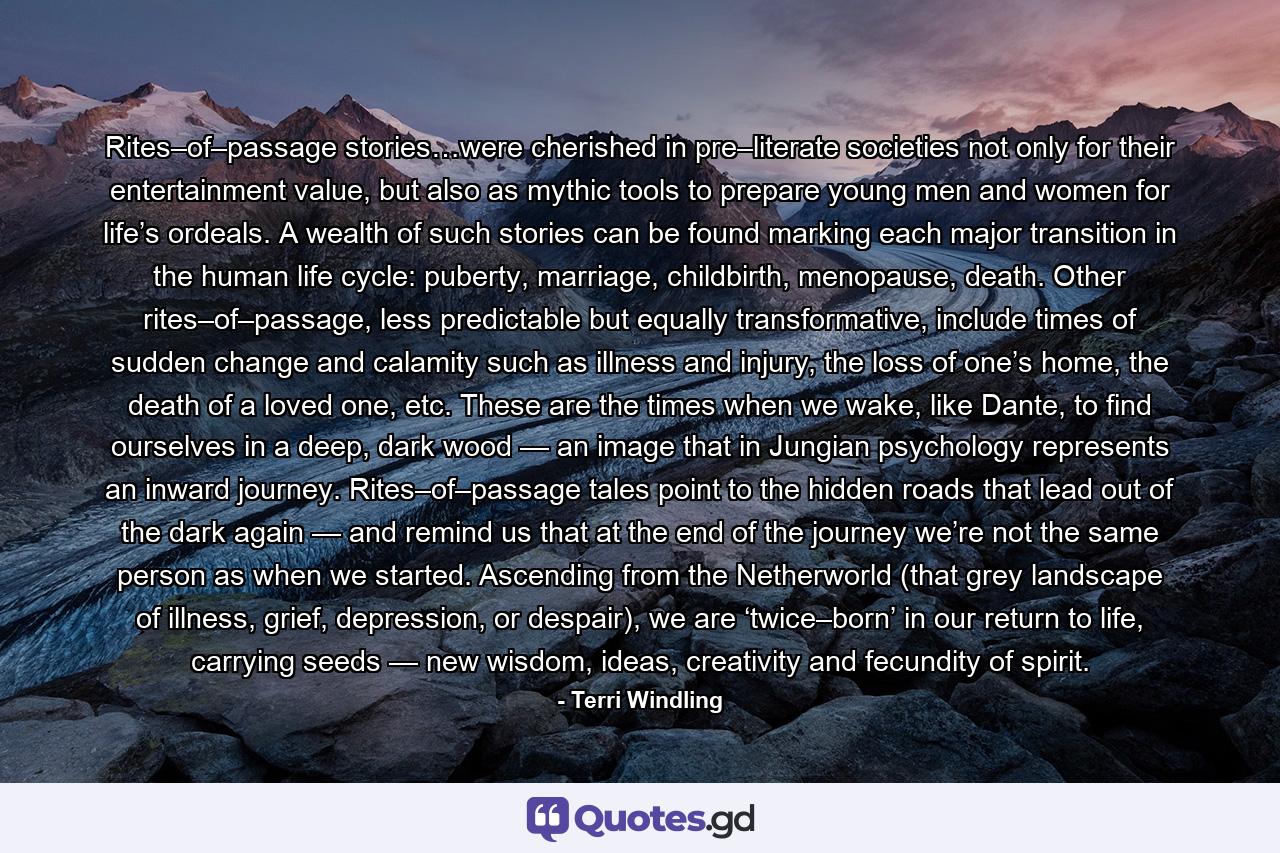Rites–of–passage stories…were cherished in pre–literate societies not only for their entertainment value, but also as mythic tools to prepare young men and women for life’s ordeals. A wealth of such stories can be found marking each major transition in the human life cycle: puberty, marriage, childbirth, menopause, death. Other rites–of–passage, less predictable but equally transformative, include times of sudden change and calamity such as illness and injury, the loss of one’s home, the death of a loved one, etc. These are the times when we wake, like Dante, to find ourselves in a deep, dark wood — an image that in Jungian psychology represents an inward journey. Rites–of–passage tales point to the hidden roads that lead out of the dark again — and remind us that at the end of the journey we’re not the same person as when we started. Ascending from the Netherworld (that grey landscape of illness, grief, depression, or despair), we are ‘twice–born’ in our return to life, carrying seeds — new wisdom, ideas, creativity and fecundity of spirit.
